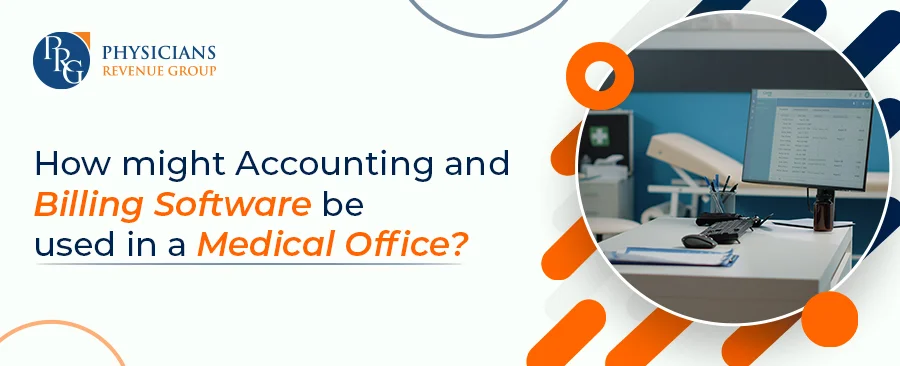
Email: info@prgmd.com | Call: +1 (630) 242-6474
Business hours: 9:00 to 5:00 | Monday to Friday
Email: info@prgmd.com | Call: +1 (630) 242-6474
Business hours: 9:00 to 5:00 | Monday to Friday

Table of Contents
ToggleThe terms accounting and billing software are primarily used interchangeably – both of these depict solutions that:
-the healthcare organization’s revenue management.
Furthermore, it doesn’t mean that your software must have the word medical or healthcare in their names or descriptions. The healthcare billing process is quite similar to other industries. Additionally, medical billing services are a set of intricate, time-consuming, and labor-intensive cycles, which derive unique specifications of healthcare practices and insurance providers, including needing both accounting and billing software for smooth operations.
In healthcare, working with sensitive financial and personal data necessitates many precautions. Additionally, with the rising concerns regarding privacy in the digital world, as a provider, you must ensure security as the top priority when choosing cheap medical billing software.
Both medical billing and accounting have different timeframes. Medical billing processes focus on the revenue cycle’s front end, including:
On the other hand, medical accounting focuses on the back end of the revenue cycle that provides for:
Both processes and the accounting and billing software require different skill sets. Healthcare billing requires knowledge of insurance coverage, billing codes, and claim submission processes. While on the other hand, medical accounting needs knowledge of accounting principles, tax regulations, and financial reporting.
It is where your practice can make an impressive impression and create a smooth experience for patients before they even walk into your facility for their first appointments. In addition to displaying important appointment information, software must also assist your staff in the collection of other essential patient data/information, including:
Linking billing and insurance verification and having all necessary information available to practitioners before the first appointment is a massive time saver for everyone involved.
Healthcare claims management is another time-consuming responsibility. It often results in being outsourced to a third-party billing provider. Outsourcing is essential here, as with the proper organization, filing, billing, processing, and updating of the claims, the patients are more likely to know and understand what they owe. Furthermore, in such situations, your office won’t be able to collect reimbursements from the correct payer, affecting your practice revenue.
The good news is that you can stay on top of the claims submissions and even avoid delaying payments with the accounting and billing software, which lets you streamline your processes with the following:
Like other business management solutions, accounting and billing software come in varying functionalities, sizes, and shapes. They can come with simple features or comprehensive capabilities for meeting the unique needs of your practice. The software solutions can either be:
These ways can become a vital part of your entire practice management suite. Whatever you choose from the solutions or type of software, remember to be patient, be thorough, and make it all count.
The core benefits include:
Accounting tools or software facilitate documentation of financial transactions. These serve as a system of recording, and can be put to use for:
On the other hand, the billing software facilitates practitioners in sending invoices to patients more efficiently and flexibly.
Share:
Categories
Recently Added

What is an ABN in medical billing?

What does a Clearinghouse do During Claims Submission?

What is EOR in Medical Billing?
We Would Love to Assist You!
We treat your data confidentially and don’t share any information with a third party.